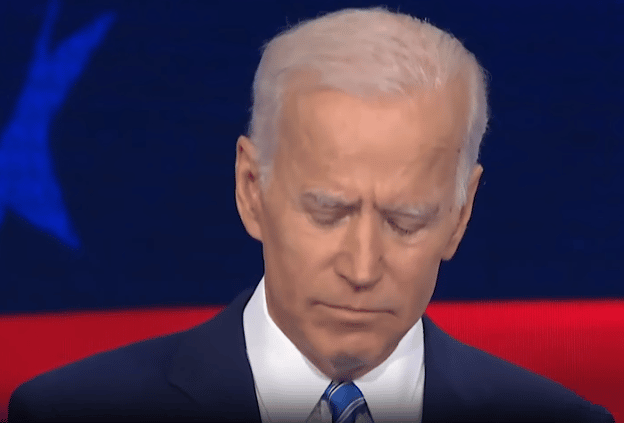71 percent of registered voters say that post-Covid inflation has “proven sticky and is here to stay” according to the latest Harvard-Harris poll take March 20-21, even as President Joe Biden struggles to assure voters that inflation is calming down.
That includes 87 percent of Republicans, 70 percent of independents and even 56 percent of Democrats who believe that the high prices are “here to stay.”
Only 29 percent believe the U.S. has “made progress getting them in line and under control,” including 13 percent of Republicans, 30 percent of independents and 44 percent of Democrats, which could indicate a massive credibility gap for the current administration.
At the State of the Union Address on March 8, the last one of Biden’s first term, the President stated, “Wages keep going up. Inflation keeps coming down. Inflation has dropped from 9 percent to 3 percent — the lowest in the world and tending (trending) lower.”
While it is true the rate of inflation has slowed down from a peak of 9.1 percent in June 2022 to a current level of 3.2 percent in Feb. 2024, in fact, since Feb. 2021 consumer prices are up 18 percent, according to Bureau of Labor Statistics data, but personal income measured by the Bureau of Economic Analysis including government transfer payments is still only up 16.6 percent.
So, the 71 percent of voters are correct. Prices, which exploded after nearly $7 trillion was printed, borrowed and spent into existence for Covid in 2020 and 2021, have not come down at all on an overall basis, nor have incomes yet caught up.
Since, inflation is generally an ongoing process, the only metric by which Americans can measure how well off they are has been whether they have an income, and if so, is it able to keep up with the prices. So far, for the first time in modern economic history, it has not.
Not even Gerald Ford or Jimmy Carter had this problem in the 1970s, as bad as the inflation was, personal income was more or less able to keep up.
Under Richard Nixon and Ford, from Jan. 1973 to Jan. 1977, consumer prices grew 37.4 percent, but personal income kept pace, growing 44.8 percent. And in Nov. 1980, consumer prices since Carter had taken office were up a 45.8 percent and personal income was up 55.4 percent.
Neither boded well for Ford and Carter, who lost in 1976 and 1980, respectively, the first time there had been two consecutive one-term presidents since Benjamin Harrison and Grover Cleveland traded spots in 1888 and 1892 after Cleveland had initially been elected in 1884.
Besides unemployment, inflation is one of those economic forces that has proven to be a destabilizing force politically, as it undercuts public confidence in the government.
Underscoring that point, 54 percent of voters said that Biden had not addressed the issues that were affecting them personally, including 82 percent of Republicans and 61 percent of independents. Only Democrats said they had heard what they needed, at 79 percent, although it is worth noting 21 percent of Democrats said he had not, indicating they are potentially disaffected.
Which is what inflation does. It takes the promises of prosperity made by politicians and political parties — and puts them to the test. And right now, nobody except for die hard partisans are buying Biden’s happy talk on the economy.
Robert Romano is the Vice President of Public Policy at Americans for Limited Government Foundation.







